As you probably will have already heard, I’m holding an Exhibition of 38 of my Nature of Japan images from December the 23rd to the 30th this year. With it being exactly a month from today, and bearing in mind that I just completed ten 20×30″ gallery wraps that I’ll be displaying, I thought I’d give you an update on my preparation, including a few things that I didn’t touch on in Episode #262 in which I relayed some of my thoughts on Preparing for a Gallery Exhibition.
Image Selection and Order
Firstly, as a direct follow on from Episode #262, especially having been contacted by a few people on this, I wanted to talk a little bit about my thinking behind selection of the 38 images and what I was thinking as I came up with the order.
As I mentioned before, the images were narrowed down to 38 pieces that represent my Nature of Japan portfolio of work. The reason that I selected such a wide selection of work is because I really wanted to present the viewer with my vision of Japan, and the wonderful variety of nature and colors in this beautiful country. I have enough images to do an exhibition of just Hokkaido Winter Scenes, just Snow Monkeys, just Flowerscapes, just Birds, just Red-Crowned Cranes, or a number of other more specific sets of images, but I really wanted to show the images that really move me from the last five years and it’s my wish that people that come to see the show will also be moved by the pieces. If they are not, then that’s too bad, but I think that people that are on a similar wavelength to me will enjoy the collection.
On the actual order that the images will be presented to the viewer in as they move around the gallery, my initial thinking, as with when I put a portfolio together, was to lead with my strongest piece. Now, for those of you that won’t make it to the show, don’t worry too much if I skirt over a lot of this here, as I intend to create a slideshow of the images, hopefully even containing some video footage from some of the locations, and I’ll release that at around the time I’m doing the Exhibition.
The Mother and Child Snow Monkeys is probably one of the emotionally strongest pieces of the collection, so she gets to go first. As the visitor walks into the gallery, they’ll see this first, along with three more 20×30″ gallery wraps on the first wall. The next three images are not necessarily strong pieces but I wanted to also introduce the viewer to the fact that some of the work they’ll see is black and white, some is grand landscape work, and some is wackily vivid and highly saturated work, as the turn the first corner.
From here, I started to batch my work into groups trying to keep a theme for each segment of wall. The second wall starts with four autumnal leave shots, but then there’s my long exposure shot of the Shinto Gate with the sea behind it. This doesn’t match the wall as such, but is more a change of pace, showing the viewer that the bright vivid autumn colors finish here.
On the next wall I gathered most of my winter wildlife images, starting and ending with Snow Monkey shots, and including Ezo Deer, Red Crowned Cranes and some Steller’s Sea Eagle and White Tailed Eagle shots. Next we have a short partition that stick out at right angles from the wall, with room for three images, so I placed the three waterfall shots that I wanted to display here. As the viewer walks around to the other side of this panel, there’s room for two more shots, and I decided to show two full-frame bird in flight shots here. Sure, these are winter wildlife images, but A) they don’t fit on the same wall as the others, and B) they are slightly different in that they are just birds in flight, with little other information about their surroundings, unlike the other wildlife images.
Next up the viewer is wacked about the head by a sea of red bokeh in a 20×30″ gallery wrap of my white poppy in red shot. To the right of that is a moody cherry blossom shot, and then a 20×24″ gallery wrap of my black and white lotus flower shot. I just finished this gallery wrap a few days ago, and I’ve got to tell you, it looks spectacular. The Breathing Color lamination process is now a piece of cake by the way, now that I figured out that the last remaining problem with the white flakes was caused the foam rollers that I also bought from Breathing Color, but I digress.
On the next wall, which is the back wall of the gallery, we take a short walk down Bokeh Lane with another Poppy Flowerscape, but there I grouped three bird shots together, with lots of bokeh, and also the White Eye in the Cherry Blossom image that was published in Popular Photography Magazine earlier this year. Again, at the end of this wall, the viewer gets another hint at the change that is coming, with a winter scene with red persimmon fruit in the snow covered tree, before they turn the corner for the final straight along the longest side wall of the gallery.
Here we have nine winter scenes in a row, three of which, evenly spaced, are gallery wraps. Three of the images have eagles or swans in them, including the Steller’s Sea Eagle with the Kuril Islands in the background that I chose for use in the poster for the show. We end here with the serene scene of the jetty at dusk, and the lone swan on the Kotoku Pond, that I’ve had at the end of my Nature of Japan portfolio for a while now. I think these two images lead the viewer out of the collection well, even though the lone swan shot is getting a bit long in the tooth now.
So, that’s my thinking on the logical order of the images. I should add that any and all of this is just planning until I actually see the images on the wall at the gallery. My intention is to get the pieces displayed as quickly as possible, and then see what they really look like. If anything needs to be placed in a different position to this, it will be changed on the fly, on the evening of the 22nd as we set up.
Meet the Gallery Owner
Moving along to some of the other things I’ve noted as I continued my preparation, I wanted to touch on the importance of meeting the gallery owner before the show. This may be pretty obvious, but I initially booked the gallery without actually meeting the gallery owner. Communication was good, but perhaps a little businesslike and relatively dry. Having visited the gallery last week and talked directly with the owner though, it was not only nice to put a face to the voice, as it often is, but they also offered me a number of benefits that they were not initially open to. Whether this was intentional, or they just opened up to me more once we’d met, I don’t know, but I certainly felt that actually meeting was part of it.
The biggest thing for me is that although they initially stated that I couldn’t start to set up the Exhibition, hanging pictures etc. until 10AM on the morning of the show, they are now going to allow me to start setting up from 7PM on the previous day, after the previous show is cleared away. This is a huge help! This means that I’ll probably have everything hung by around 9 or 10PM on the previous night, and even more importantly, will have a little bit of leeway to bring anything that I might forget or become aware of at the last minute, on the following day. It’s a big relief to have a chance to screw up without it going instantly public.
It also means that I will be able to take the art pieces to the gallery in my own car. Originally I was thinking that I’d need to hire a moving company for a few hours to take the gallery wraps and framed prints over to the show, because paying for parking for a full day in the city is extortionate, and I will also be having a drink at the opening party, and so not able to drive home.
During my visit I also confirmed that we’ll have enough wires to hang the pieces from, and I have also checked the audio system, and now understand how I’m going to be setting up my audio to play through their speakers, which is great, because they have four Bose speakers, one in each corner of the room, tucked up in the ceiling space. I intend to play music that will hopefully match my work, and will be creating a playlist in iTunes, either on a laptop or on my iPad, and loop through that all the time the show is open. I will of course also put my entire library of music on there, so that I can customize the playlist as I see people’s reactions to the show and the music.
I’ve also ensured that I have the flexibility to move the spotlights around to light my work nicely during the show, which is important, as I don’t really want to create dark spots, unless done intentionally to increase the impact of a piece of course. I’ve also confirmed that they have a number of collapsible tables and wooden boxes that can be used to build platforms for displaying supporting materials, and a table to put the visitor’s book that exhibitions here usually have for people to sign and leave an address to let them know about future exhibitions etc.
Before we move on another topic, there are a few last few things I wanted to touch on. I want to quickly mention that I will also be creating a profile panel, with a little bit of information about me so that people that don’t already know me can get an idea of where I’m coming from. I’ll also be creating a board or flyers about the archival quality of the materials used in the gallery wraps and prints, to educate people that might not understand the concept of archival quality prints.
I also will be creating little caption cards to place on the wall either below or to the right of each piece, with the title of each piece and probably the month and year that it was shot, as well as a few words about the piece. I also intend to put a price on each caption plate, or a number, which will map to a price list. I’m still figuring out which is the best way to go about this even today, with just one month to go!
Getting the Word Out
I also wanted to talk a little about getting the word about the exhibition out there. Exhibitions here in Japan are usually quite short. I’ve seen people do exhibitions of less than a week, and a two week exhibition here is a bit of a luxury, so you have to try to get people into the show while it’s open, especially if you want to make some money from the sale of the art pieces.
Of course, one of the first things I did was create an English and Japanese Web page, and tell all of you about the Exhibition via this Podcast, but I also know that many of you don’t even live in Japan and will have little to no chance to actually visit the Exhibition. I also put an annoying little message onto all of my Web sites via the Wibiya Toolbar, that presents everyone that visits the site a brief description of the show and a link to the details page. This can be turned off of course, so hopefully didn’t annoy people too much. This will allow me to also reach people that don’t necessary listen to the Podcast, but still, this won’t be enough to get people in Tokyo, into the gallery.
To get the word out to people that would otherwise have no way to even know that I exist, I created a thousand Postcards, and took them to some of the large Camera stores in Tokyo. Yodobashi Camera in Shinjuku for example has a large plastic holder, that we can see here, in which people can drop their exhibition postcards. It’s a free service, and anyone that’s having an exhibition is free to put their postcards or flyers in there. Of course, I asked at the counter too, to be polite. I also gave a stack of over a hundred postcards to the kind folks at Map Camera, just down the street from Yodobashi, and they told me that they’d put a stack on each floor of their store, which is great.
It’s important to go back and see how the postcards are going down too. To be honest, the first time I went back to Yodobashi after about 10 days, the stack had hardly changed, but when I went back last weekend, still a few weeks on, there was only a few left, so hopefully that’s an indication that I’m generating some interest, even if all the people that took the postcards don’t turn up. At the very least now they know that there is an active photographer in Tokyo called Martin Bailey, and that has to be worth the 8 Yen or so for the card and the time to leave them there.
I also took a stack of postcards into the Canon Gallery in Ginza, and asked to see the person in charge of their gallery. They kindly agreed to put a stash of my postcards at the entrance to their gallery, and I was told that they would also send some to head office, which is great. The person in charge of the Canon Gallery said that they personally would come along to the exhibition, which will also be great, so again, well worth the effort to go over there and ask to put some postcards on display, and I hopefully made a good contact within Canon as well.
I created a B2 sized poster, which is 500 x 707mm, and took two copies to the gallery last week, for display outside the gallery while the show is on. I also printed this out at about half size and took a copy to my barber, the guy that you’ve seen portraits of a number of times. It had been a few months since I moved house, and I was having trouble finding a good barber in my new area, so I figured I’d kill two birds with one stone, and asked him to put a poster in his shop window. Here you can see him sizing it up from the outside. For the last few weeks now though, the poster has been on display in his shop window, and this is prime window space in a residential area of Tokyo, so will also hopefully generate a few more visitors. He of course has a stack of postcards inside the shop as well, for people to take away with them.
Another thing I did was contacted my favorite magazine here in Japan, and asked if they’d put an ad for the exhibition in the magazine. I don’t know if it’s been accepted yet, but if it is, it will be in a very large distribution magazine that is released on December the 20th, just three days before the start of the show, so that will also hopefully get me a few more visitors.
Anyway, you get the picture. You need to put in a little time and thought to getting your flyers into to good places and use whatever media is available to you to get the word out and enable people to learn about your exhibition. I also updated my email signature with a link to the Exhibition Web page, and have received a number of mail from people I’ve communicated saying that they’ll be coming along. The email signature is pretty much automatic once set up, and you can reach people that you didn’t even know would be interested with virtually no additional effort, so it’s all worth doing.
One last note on getting the word out is that I intend to see if there are any newspapers that will come to a quick press conference on the morning of the exhibition before I open to the public. I kind of doubt that this will be possible, but you have to think big, so I’m going to give this a try. If I can get a note about the exhibition into any of the Tokyo newspapers, or maybe even a few minutes on local television, that will really help to get people through the door.
Of course, I don’t know yet how much all of this is going to pay off. I’m hoping to sell enough work to at least break even on the Exhibition, but it’s so much more about placing a stake in the ground at this juncture in my career, and getting my name out, than it is making money. Of course, now that photography is my only source of income, it would be nice to make a little bit as well, to help keep this roof over my head. 🙂
Podcast show-notes:
A Quick Note About iPad iOS 4.2.1
One quick note before we finish about the newly released Apple iOS 4.2 for the iPad. If you’ve tried to listen to the Enhanced Podcast version of this Podcast on an iPad, you’ll probably have noticed that the images that we discussed were not displayed on the screen as they are in iTunes or on an iPhone or compatible iPod. This was an incredible screw-up on Apples part in my opinion, with them not fully supporting one of their own proprietary formats. Anyway, that aside, iOS 4.2.1 for the iPad fixes that issue, so now, if you listen on an iPad, you’ll be able to enjoy the images as we discuss them too. There is still the problem that the images are lower resolution than the iPad screen, so they don’t look 100%. This is of course another Apple screw-up, because they make Garage Band too, the application that I use to create and encode the Enhanced Podcasts, but we can probably expect a fix for that in OS11 or whatever.
Audio
Download the Enhanced Podcast M4A files directly.

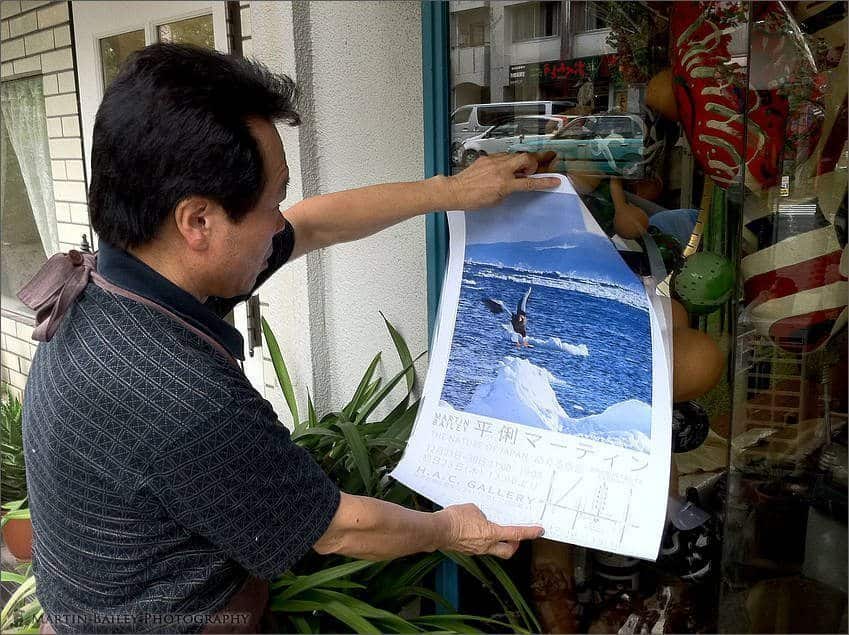
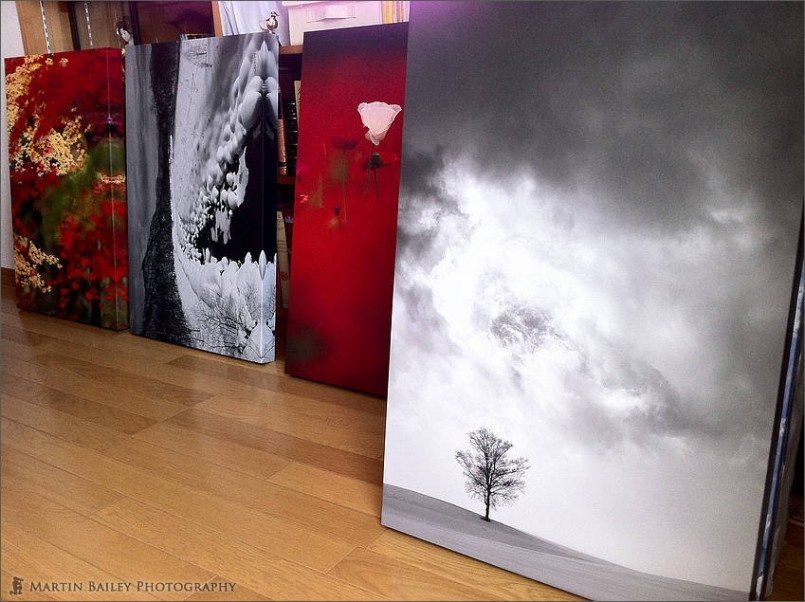
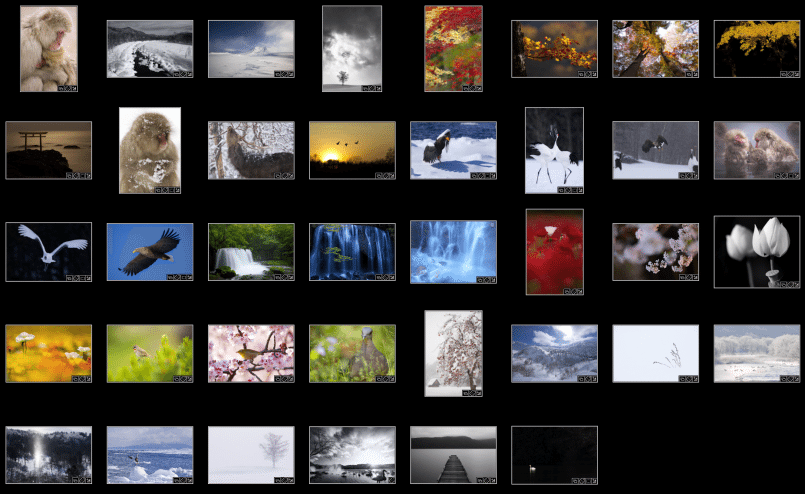
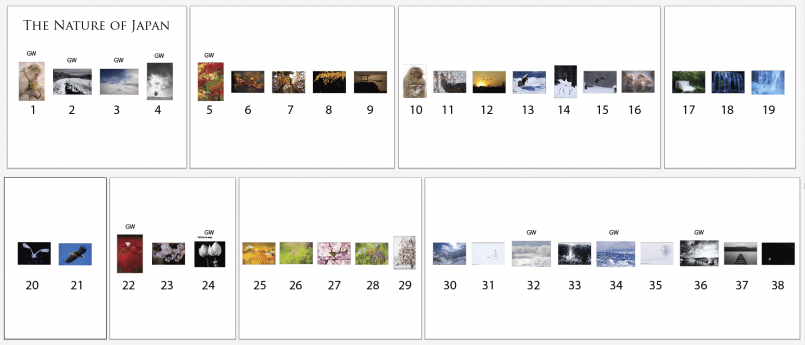
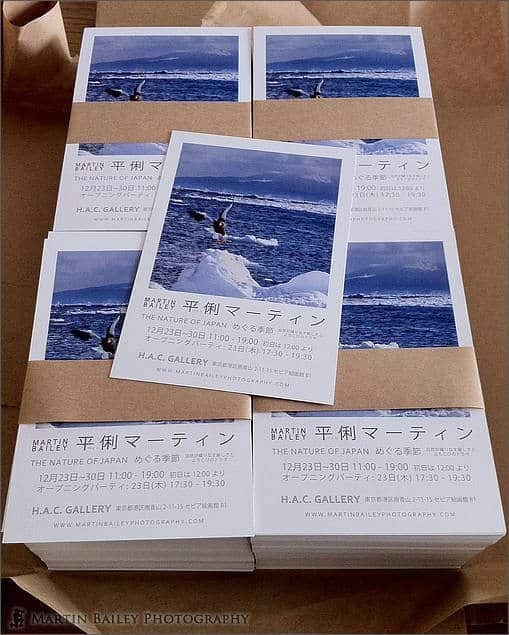
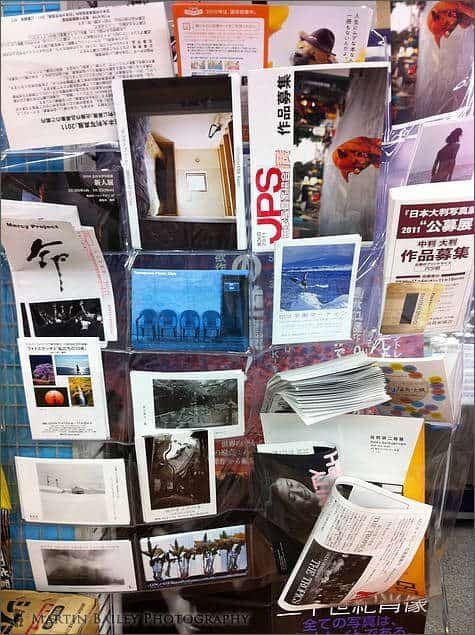
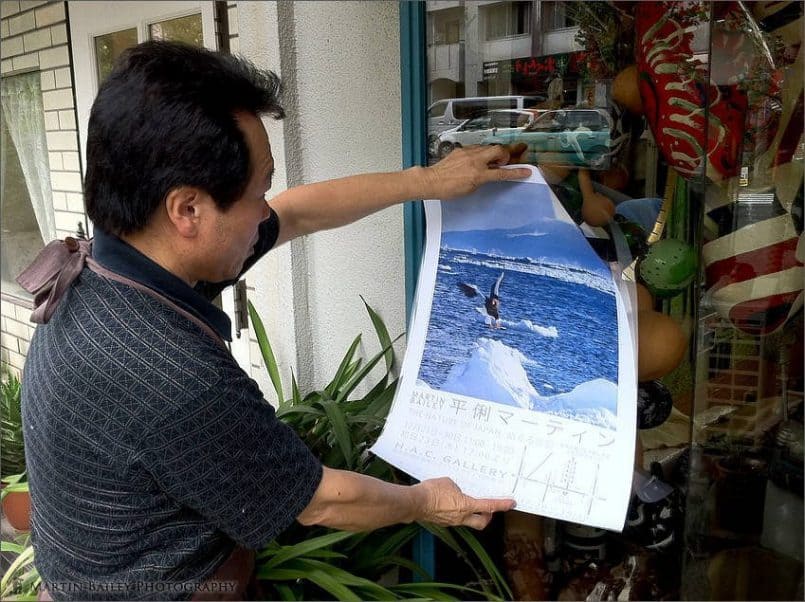
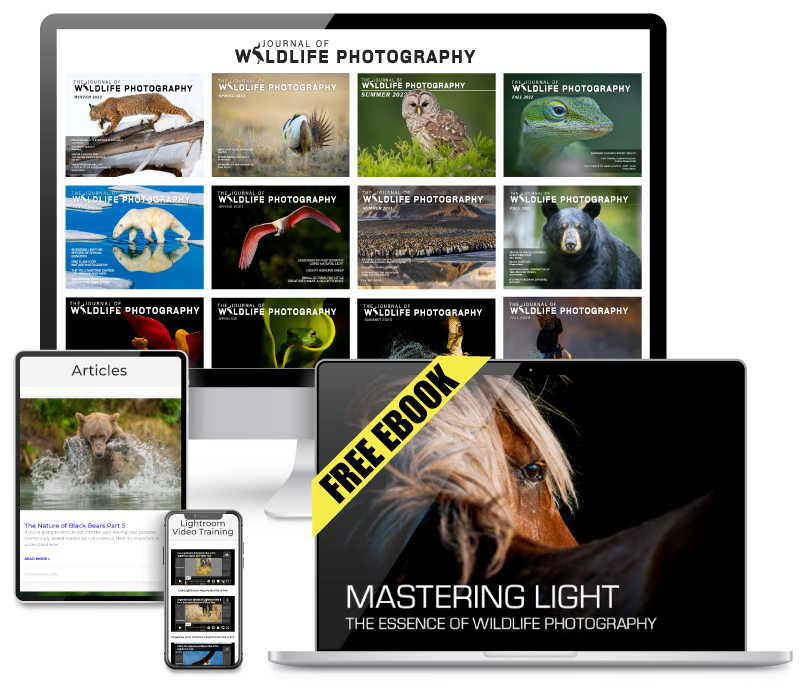
Hi Martin
Looking good! I’ve been to a few exhibitions recently and have noticed more people moving back to simple oak frames. Did you consider this or are canvas boxes still very much in Japan?
Hope things go well, keep the update photos coming!
Best wishes
Gary
UK
Thanks Gary.
Gallery wraps are only just catching on here, and I think the 10 pieces I’m presenting on them will get some nice reactions.
The other 28 pieces will have simple black frames. I don’t like oak myself. It’s a little too retro for me. 🙂
Cheers,
Martin.
Martin, Would you mind sharing the solution you came up with for your “Wall Cards” (Caption Cards)…? I’m prepping for my first exhibit, and I’m expected to provide these. Did you buy some card stock and print them yourself? How did you adhere them to the wall? What info did you include?
Thanks!
Jerry
BTW: I’m LOVING “Striking Landscapes”. The section on Panos has left my head spinning though… You are truly a master of minutiae…!!! I’m thinking that the only way to wrap my little pea-brain around that process is to actually do it. in the field step-by-step. I can’t conceptualize well enough without the “hands on” practice.
Hi Jerry,
I actually ended up just creating a word document with page size 3.5 x 5cm and printing onto this size gloss photo paper from Canon. If I did this again now, I’d probably lay these out on a large sheet of fine art matte paper and cut them up with my rotary trimmer.
I kept them relatively simple. Here’s a link to the first 9 pages of the document to see how I laid them out and the sort of information I included.
https://martinbaileyphotography.com/wp-content/uploads/2014/03/Caption_Plates.jpg
I adhered them to the wall using white blu-tack, if that makes sense. 🙂
Thanks for picking up Striking Landscapes! Yes, that panorama stuff is heavy going, but it’s quite easy if you actually try it, as you say. That hammers the theory home.
Cheers,
Martin.
Hello Martin,
I’m from Quebec, Canada. I bought two of your ebooks on Craft&Vision, Making the print and Sharp shooter. I certainly will pick Striking landscape in near future also. I’m very thankfulness for the generous share of your work, as for the others artists that contribute to Craft&Vision, that very bring me elsewhere in my photo learning. Concerning photography, I’m not passionnate, but obsessionate!! So, these purchases conduct me here, on your website and blog, where I will spend a lot of time, reading your teachings and reflections.
For now, I prepare a first exhibition and I would like to know if you sign your gallery wraps, adding it on your image with photoshop? And, I’m still incertain if I will choose gallery wraps or prints in matt finish mounted on foam core mount from MPixPro laboratories in USA. I read Making the print and saw that you make all your gallery wraps yourself very meticulously, but for me, I’m not there at this moment, but still want to produce a very nice product (and first impression!) for this fine art place where I will show my work for the first time, and really want to make good decision about this.
Many thanks for the share of your experience and knowledge and your time and your images are simply a delight for the eyes and saoul,
France Q.